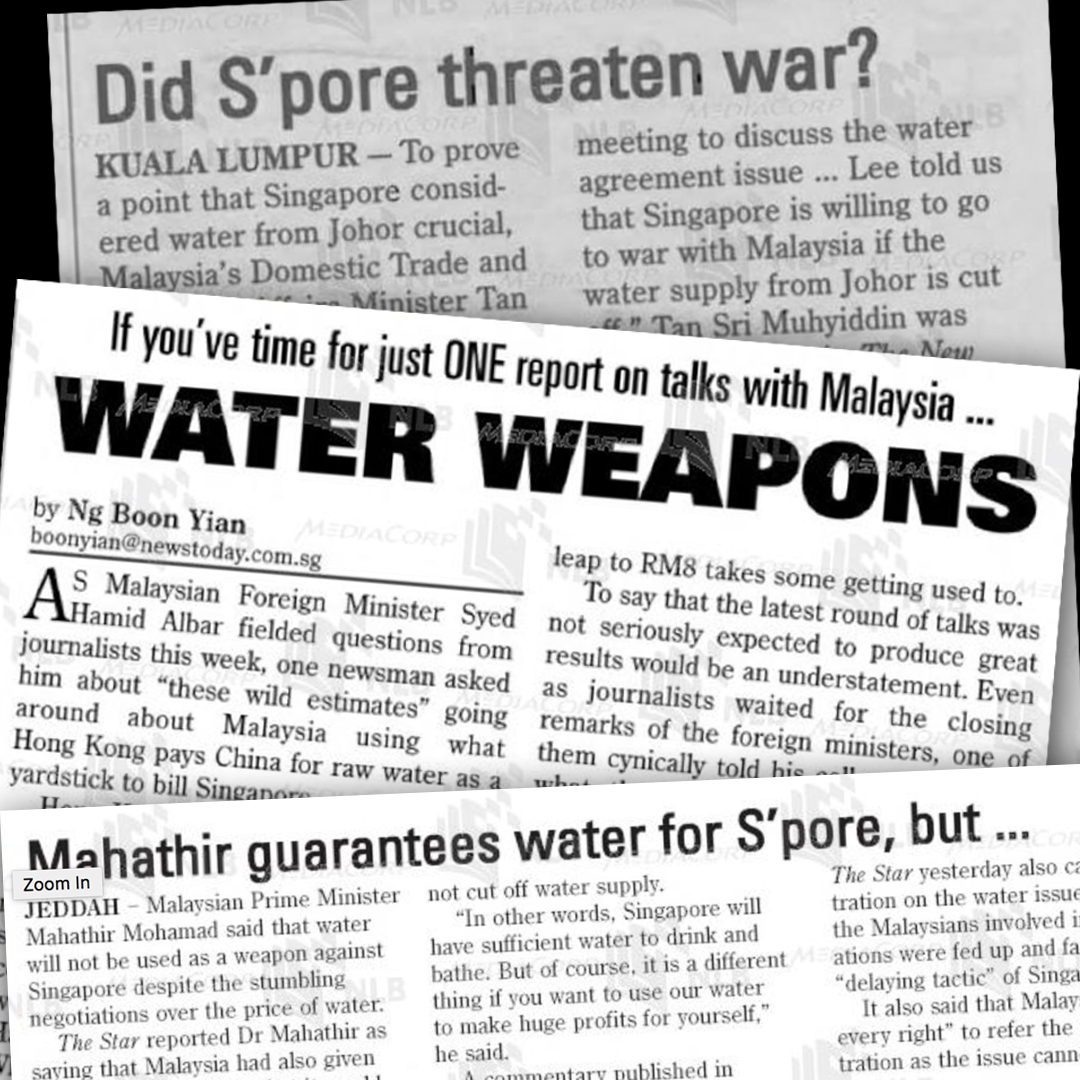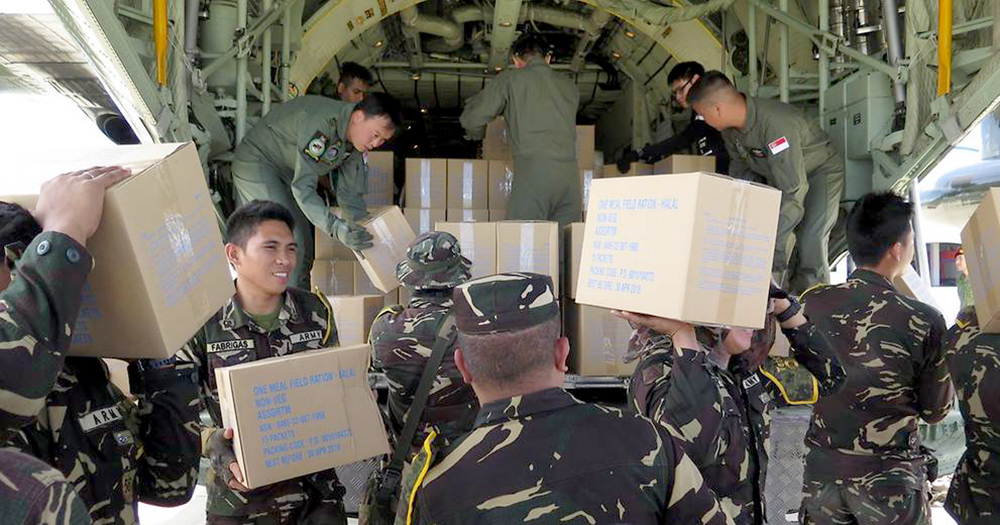Singaporeans will never hear the end of how Singapore built up its water resilience for survival.
And it is not a bad thing.
Water as diplomatic tool
Singapore has been developing and innovating its water-harnessing technology, making sure to collect every drop of water, reusing water endlessly and desalinating seawater.
It is a testament both to the ability to overcome a vital resource shortage and the administrative will to confront the issue head on in the first place.
The long-term goal is self-sufficiency, and to reduce dependence on Malaysia’s supply of water as a major source.
And by developing this ability, Singapore has harnessed water not only for survival, but also as a diplomatic tool.
Water as negotiating card
Throughout the 1980s and 2000s, Malaysia often issued veiled threats to cut off its water supply to Singapore.
Things got pretty ugly in 2002 when talks between the two governments regarding a bilateral package deal escalated into a war of words about the pricing of water.

While Malaysia never acted on those threats, it was a very clear example that Singapore did not have the upper hand, and had to depend on the sanctity of international agreements in water negotiations.
Shortage of water is the mother of innovation
Singapore subsequently resolved to cut down its dependence on Malaysia's freshwater by developing her own water.
This is now most notably done by desalinating seawater and recycling waste water (NEWater).
The Singapore government is set to be completely independent of Malaysia's water supply by 2061.
Water expertise and humanitarian efforts
Singapore has been making steady progress towards water self-sufficiency.
The growing confidence in improving the potable water-harnessing technology and in the domain of urban water management has consequently allowed Singapore to become an international leader in water matters.
This is an increasingly important matter today when water security is a global issue.
Taking leadership role
This sort of expertise and leadership enables Singapore to engage in what is called "niche diplomacy", which is how a country can use its domain expertise to exercise influence.
Singapore does this by sharing water management expertise and offering humanitarian help, often to emerging countries that do not yet have a stable water management system in place.
The Philippines, for example, casually sought Singapore’s advice on solving the problem of severe water shortages in urban areas due to unfavourable weather.
Singapore's public service experience
The PUB's Technology and Water Quality Office is currently a designated World Health Organisation (WHO) Collaborating Centre for water management.
It promotes "safe management of drinking-water and integrated urban water management".
This is done by sharing best practices, conducting training for WHO members states, and leading public health strategies in the Western Pacific region and other regions in the world.
Singapore has been able to lend her expertise in water management to countries such as India in 2012, and Mauritius in 2011, to treat waste water and develop systems that provide potable water.
These were managed by the Singapore Cooperation Enterprise (SCE), which helps foreign governments meet their development objectives by drawing on Singapore's public service experience.
Humanitarian assistance
More importantly, Singapore shares her water expertise in the form of humanitarian assistance.
In 2017, the Singapore Red Cross provided water filtration equipment and other supplies to Marawi when it was under siege by pro-Islamic State fighters.
Singapore also provided water monitoring equipment and filtration sets to Cambodia and Thailand when they were hit by devastating floods in 2011.
In the longer term, Singapore is providing bio-sand filters to rural areas in Cambodia to help them access clean water and reduce the incidence of water-bourne diseases.
All these water efforts have enabled Singapore to strengthen diplomatic relations with other countries and her position on the global stage.
These sorts of niche expertise were developed as a result of the country's vulnerability in the first place, namely, water insecurity and scarcity.
Top image from Defence Minister Ng Eng Hen's Facebook page depicts SAF humanitarian efforts to Marawi
If you like what you read, follow us on Facebook, Instagram, Twitter and Telegram to get the latest updates.
